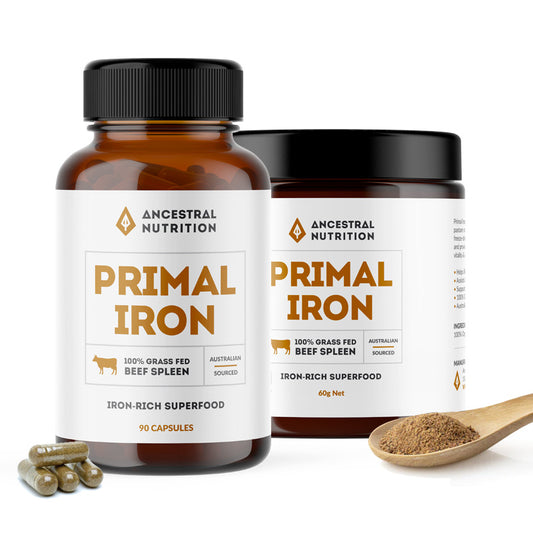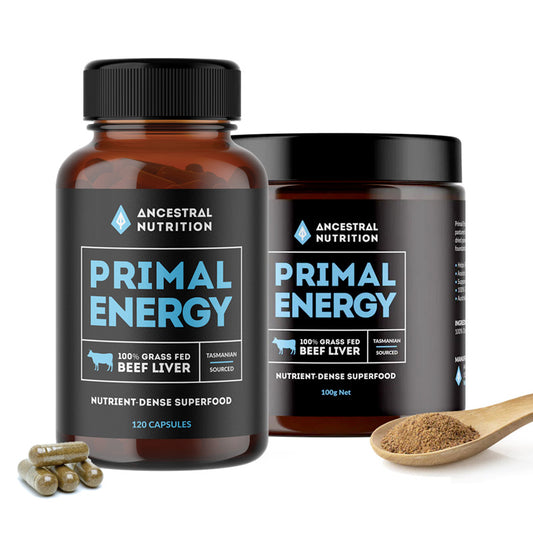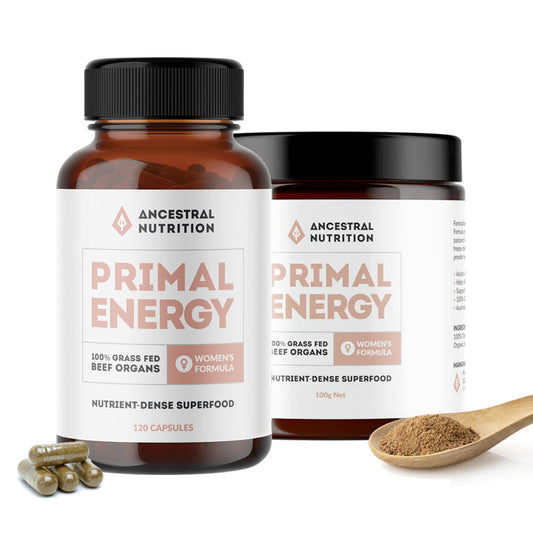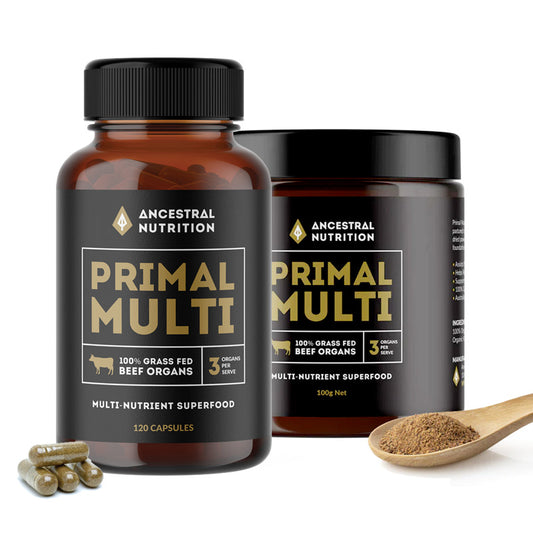Can Eating Liver Support Healthy Hair?
article by Ancestral Nutrition
Many people seek ways to support the strength, texture, and appearance of their hair — and nutrition can play a foundational role. While hair health is influenced by a range of factors including genetics, hormones, and lifestyle, a diet rich in essential nutrients can help support normal hair structure and function.
One food that stands out nutritionally is beef liver — a naturally concentrated source of key vitamins and minerals that contribute to healthy skin, hair, and overall wellbeing.
Key Nutrients in Liver That Support Hair Health
B Vitamins
Beef liver is naturally rich in a wide array of B vitamins, including:
- Biotin (B7), which contributes to the maintenance of healthy hair and skin
- Folate (B9), involved in normal tissue growth
- B12 and B2, which support energy metabolism and red blood cell formation
These nutrients help deliver oxygen and nourishment to hair follicles through their role in normal metabolic and circulatory function.
Fat-Soluble Vitamins
Liver also provides vitamins A, D, E, and K — nutrients that support cell function, antioxidant protection, and healthy tissue development. For example:
- Vitamin A contributes to the maintenance of normal skin and mucous membranes
- Vitamin D supports immune function and cellular health
- Vitamin E helps protect cells from oxidative stress
Minerals That Matter
Liver contains essential minerals that support normal biological processes involved in hair growth:
- Iron, which supports oxygen transport in the body
- Zinc, which contributes to the maintenance of healthy skin and hair
- Selenium, a trace mineral with antioxidant properties
These nutrients work together as part of a wholefood matrix to help maintain general wellbeing, including that of the scalp and hair.
Other Key Nutrients
Liver also naturally provides:
- Protein, a key structural component of hair
- Choline, involved in normal cell structure and metabolism
- CoQ10, which plays a role in cellular energy production
Looking for a Convenient Option?
Not everyone enjoys preparing or eating liver — but there’s a simple way to include its nutrients in your routine. Freeze-dried beef liver supplements offer a wholefood, shelf-stable option that fits into a busy lifestyle.
At Ancestral Nutrition, our Primal Energy Beef Liver capsules are:
- Made from 100% grass-fed Tasmanian cattle
- Freeze-dried to preserve delicate nutrients
- Non-defatted, retaining natural fat-soluble vitamins
- Free from hormones, antibiotics, and GMOs
They’re tasteless, easy to take, and designed to support a nutrient-rich diet — naturally.
Always read the label and follow the directions for use. Nutritional supplements should not replace a balanced diet. If you have specific concerns, speak to a qualified healthcare professional.




